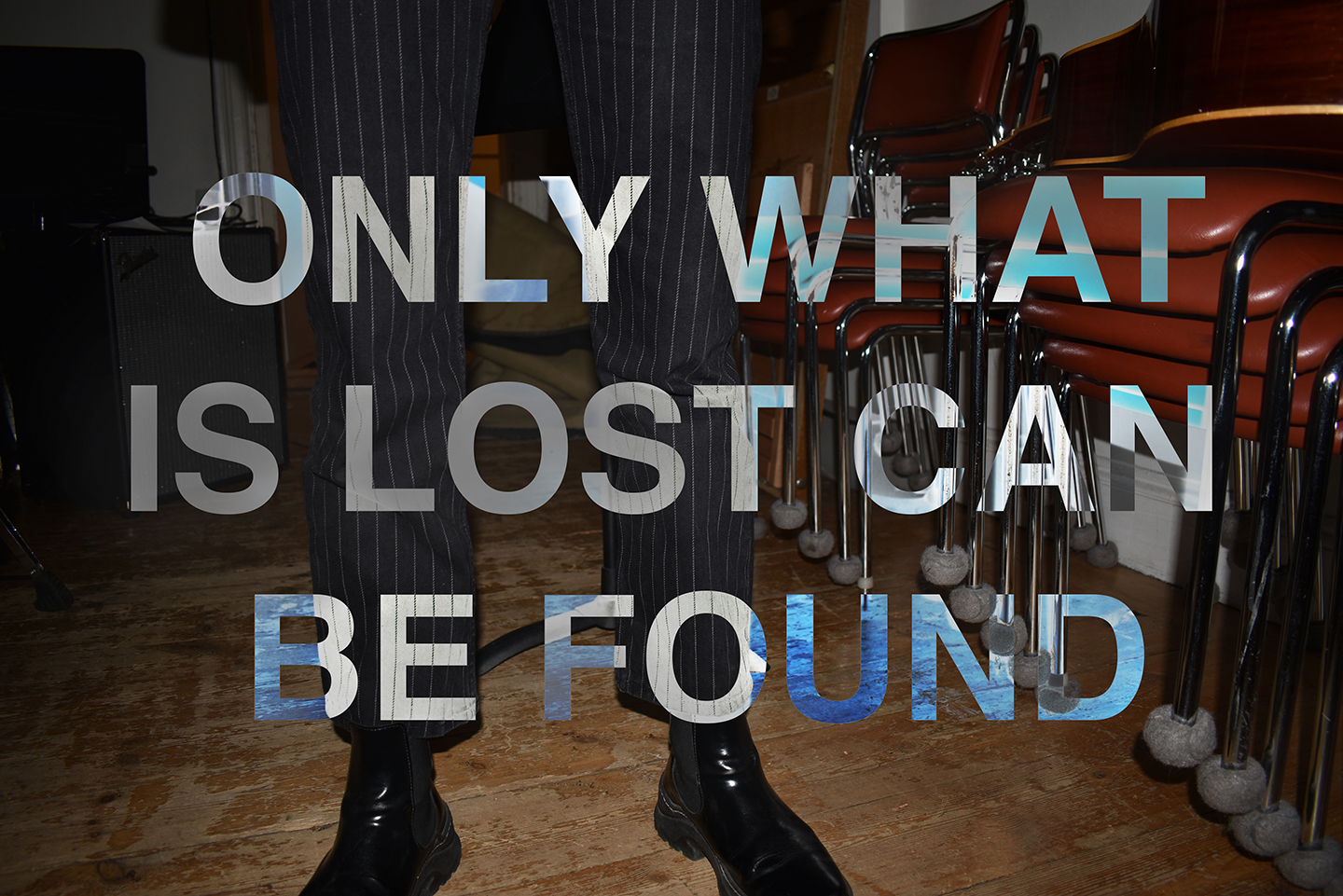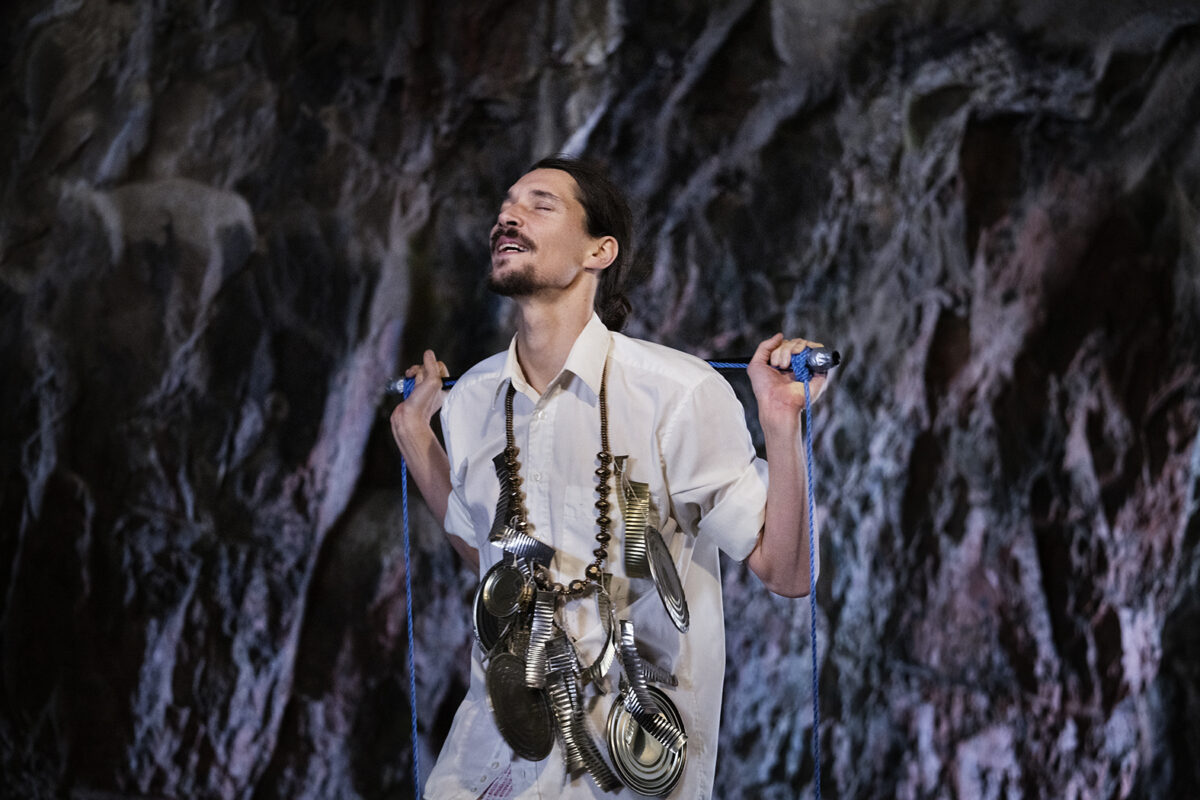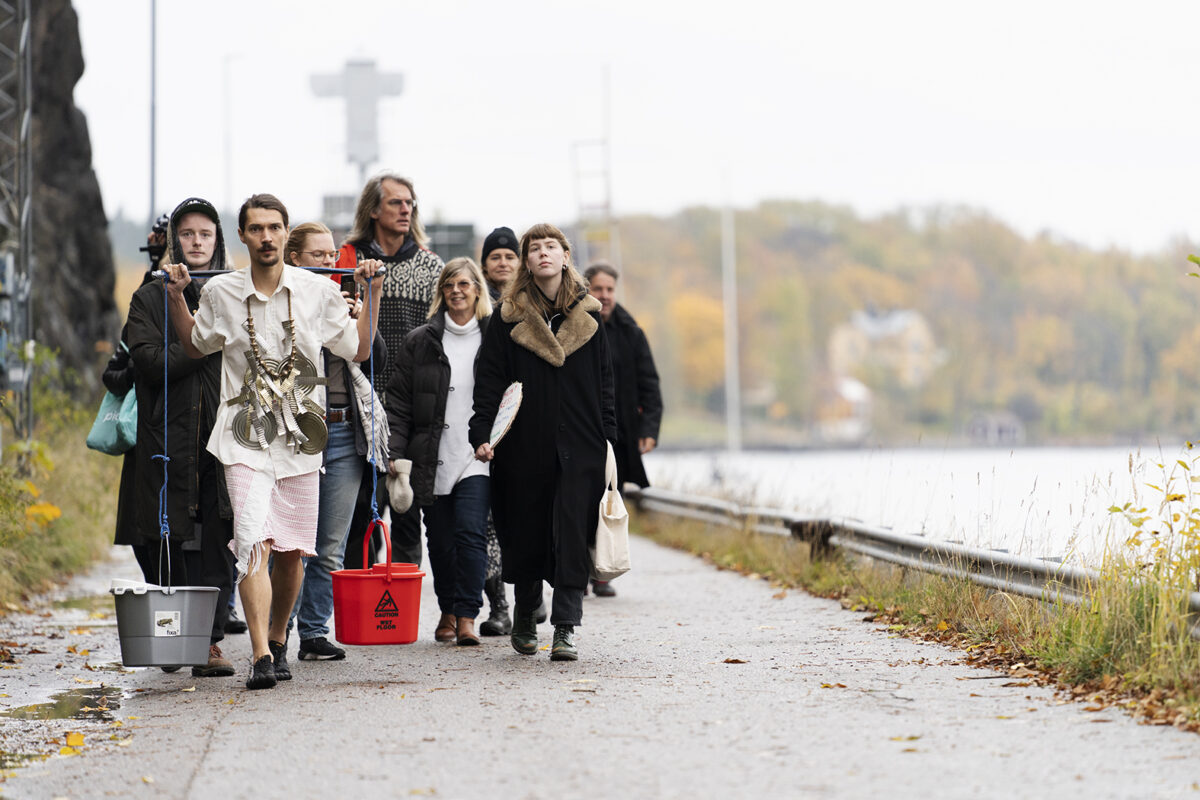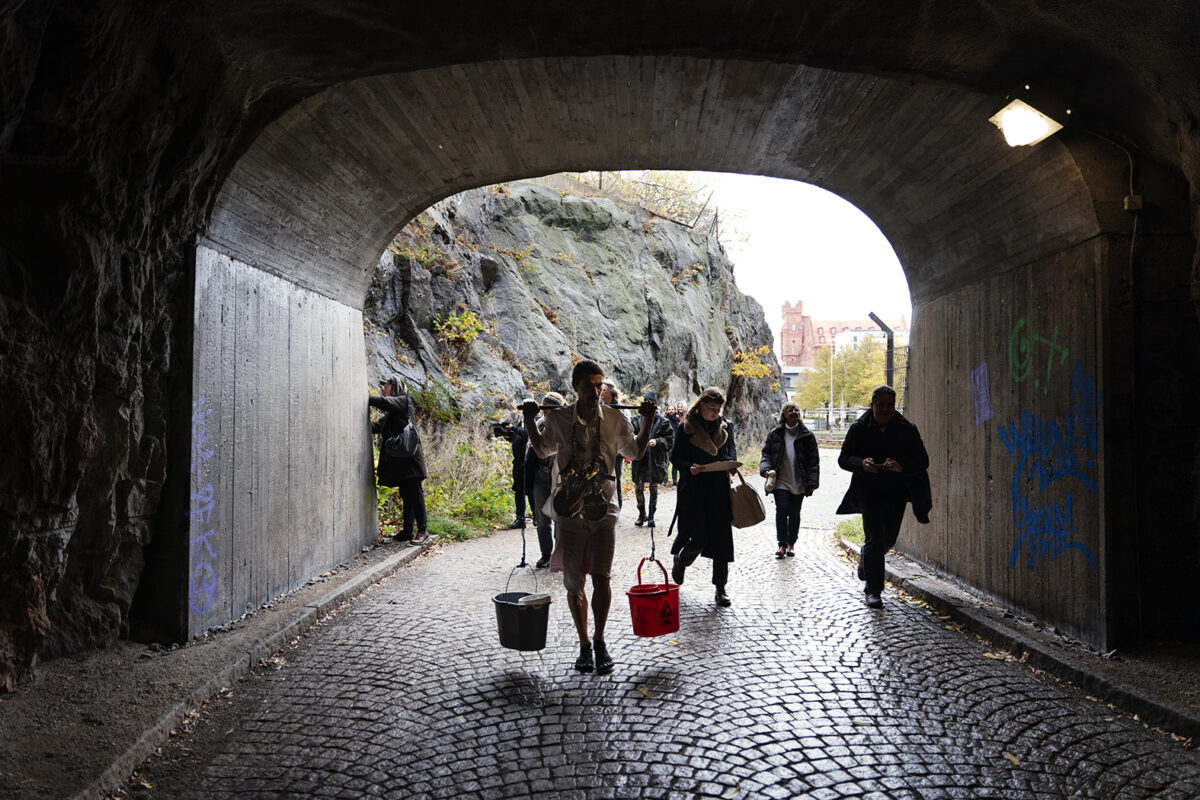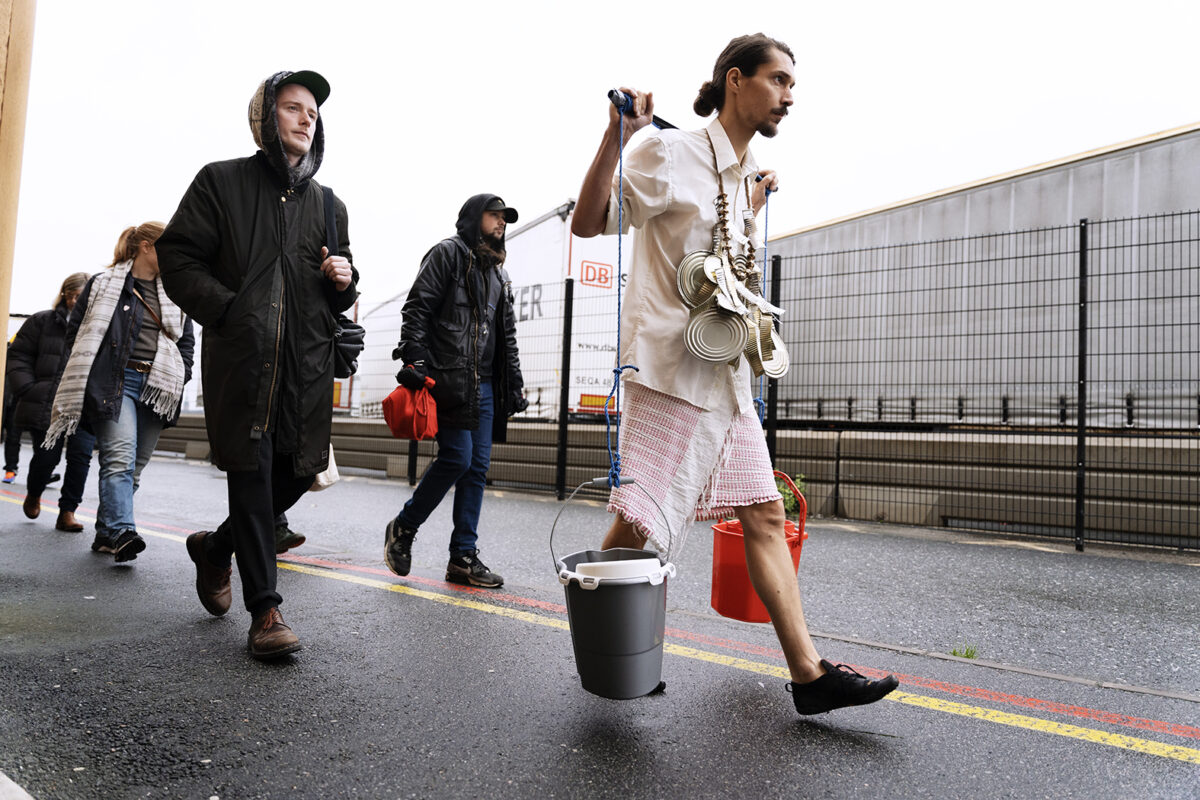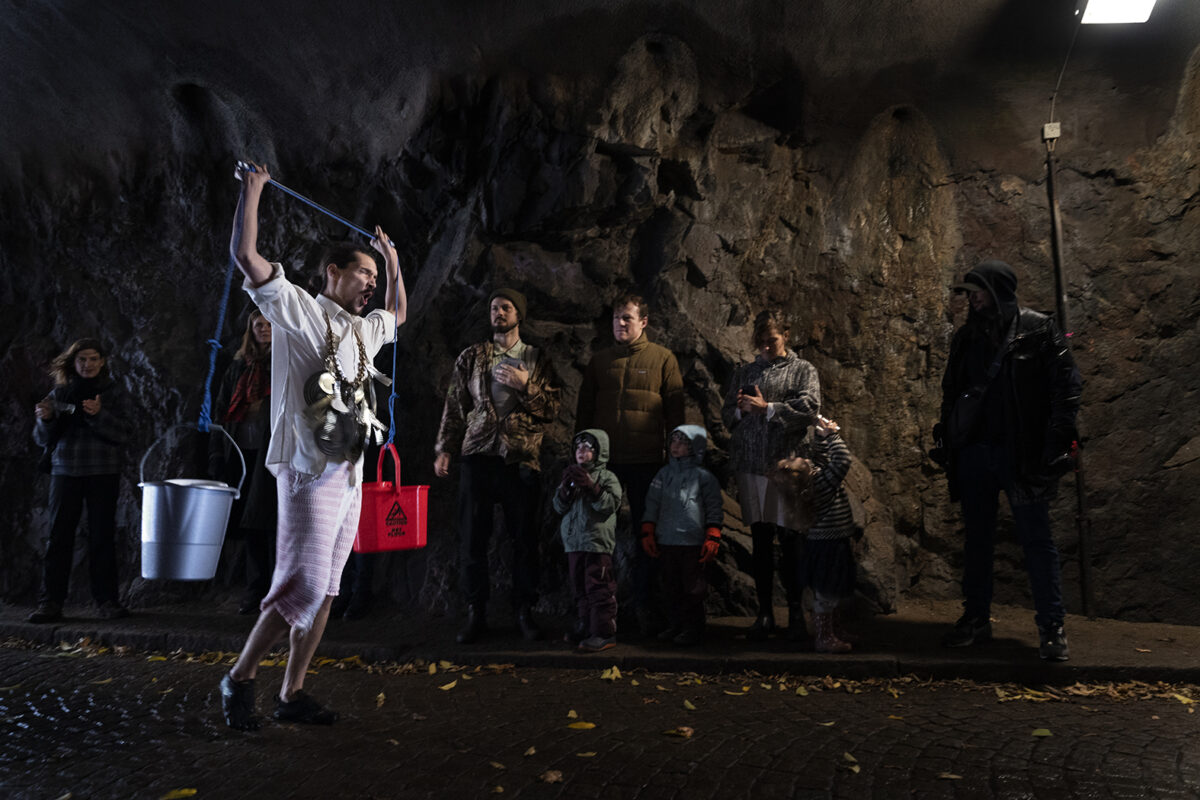Oskar Gudéhn: “ONLY WHAT IS LOST CAN BE FOUND” – Sound Performance
Tidsflanörerna (Time Strollers), Stockholm, 25 October 2020
“The performance/cermony is momentary; it is a single happening at a specific time. It is a shared moment, aiming at producing presence to and to shift focus from the imaginary world of the Self to the shared momentary experience.”
Oskar’s artistic performance took shape in a Creation Ceremony, where the viewers could participate. With breathing, listening and sounds the idea was to create the space where no-man´s land between the Self and the You is erased. He created the ceremony to symbolically hand over the body from the SELF to the EMPTINESS
“In Sweden, the “cultural heritage” (or “practised tradition”) of Individualism and of Power Centralisation is stronger and more commonplace than we like to believe (i.e. Sweden has the highest wealth inequality in the world, together with USA and Russia)!
How are we to create meaning and well-being for all, when the only thing we truly belive to be “real” is the Self? How do we learn how to care for the Other?
Speaking through action, I aim to plant a seed in peoples’ minds, making the ideas of the ceremonial, the holy and of ego-diminishing change “mentally accessible” for everyone. By doing, I will show that it is possible.
The ceremonial form was chosen as it contains multiple concepts I find important for change; 1) the mystical experience; 2) the sacred and 3) the communal.
1) Through entering trance like mental states the defining borders between “The Self” and “The Other” are blurred. By leaving my everyday behavioral (and thought) patterns for a short time, I have the possibility of rediscovering, reevaluating and rearranging the Self. If change need to happen, this is where I believe it need to start.
2) I find the concept of the sacred or holy to be incredibly powerful, yet almost despised in Sweden today. The sacred do not have to be connected to any religious belief, it could be defined as”that which is infinitely larger and more important than the Self”. Actions, people, communities, places and things can all be made holy. Acknowledging the sacred is an act of humbleness and can be seen as a source of power and inspiration.
3) Cermonies are (as opposed to prayer or meditation) not only aimed at a subjective mystical experience. They are performed together with and in relation to a community. I let my actions speak in public and I hold up my vulnarabilities for all to see and judge. I am performing honesty in relation to a community, and the community need to position themselves to the experience (and further on, to eachother).
The performance/cermony is momentary; it is a single happening at a specific time. It is a shared moment, aiming at producing presence to and to shift focus from the imaginary world of the Self to the shared momentary experience.”
My current view on life and existence is heavily influenced by Daoist philosophy and dialectics. This becomes apparent in what topics I find important in my work and the conceptual division into complementary/oppositional dalectic pairs.
Though mainly adressing the issue of Self/Other, plenty of subtopics can be found in the performance. Topics such as the use and change of (public) urban places; of participation and observation; of taking and recieving; of the mundane and sacred; of the momentary and historical; of the real and imaginary; of the individual and the communal; of art and spiritual practise; of tension and release.
